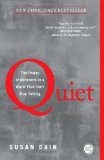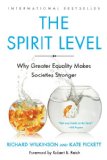Summary | Excerpt | Reviews | Beyond the book | Read-Alikes | Genres & Themes | Author Bio

Understanding Your Tribal Mind
by David BerrebyBerreby shows how our "tribal'' sense is a part of human nature, expressing itself in every aspect of life, effecting our thoughts, our health and our society more than we realize.
There are so many ways to sort people. We all do it, all the time. From
everyday decisions (whom to invite to dinner?) to life choices (whom to marry?)
to the great turning points of history (whom to war against?), we're guided by
an ever-present sense, in any situation, of who belongs with whom, and what that
belonging means. Everyone is part of many groups at once, of course - you might be
a woman, a parent, a Republican, an American, and a Hindu. So, how do we decide
which identities matter? Why do they matter so much? What makes people willing
to die, or to kill, for a religion, nation, race, or caste?
In this groundbreaking book, David Berreby shows how science tackles these
questions of group identity. Drawing on new findings from anthropology to
neuroscience, he argues that this "tribal'' sense is a part of human nature,
expressing itself in every aspect of life.
The effects run deep, shaping our lives and opportunities. Us and Them
elegantly explains how this tribal sense:
We can't live without our tribal sense. It tells us who we are and how we should behave. It frees us from the narrow confines of the self, linking us to others and the past and the future. Some condemn this instinct, as if it were only a source of evil. Others celebrate it, as if loyalty and faith were never misused. David Berreby brilliantly describes a third alternative: how we can accept and understand our inescapable tribal mind.
Even if you don't think that Us And Them sounds like a book for you, I encourage you to browse a few pages of the extensive excerpt at BookBrowse. Best case you'll find yourself hooked, just as I did; worst case, you'll store away interesting nuggets of information to throw into the conversation the next time the topic turns to what makes people act the way they do - which, when you get down to it, is at the root of most conversations!..continued
Full Review
(271 words)
This review is available to non-members for a limited time. For full access,
become a member today.
(Reviewed by BookBrowse Review Team).
David Berreby says, "Us And Them is a book about research and ideas. But I suppose its emotional
roots are in my struggles to cope with people who think their way of dividing up
humanity must be the only one around."
If you enjoy the except at BookBrowse, you might also enjoy Berreby's
Us and Them
Blog.

If you liked Us and Them, try these:

by Susan Cain
Published 2013
An extraordinary book with the power to permanently change how we see introverts and, equally important, how introverts see themselves.

by Kate Pickett, Richard Wilkinson
Published 2011
It is common knowledge that in rich societies the poor have shorter lives and suffer more from almost every social problem. This groundbreaking book goes an important stage beyond either of these ideas: it demonstrates that more unequal societies are bad for almost everyone within them - the well-off as well as the poor.
In youth we run into difficulties. In old age difficulties run into us
Click Here to find out who said this, as well as discovering other famous literary quotes!